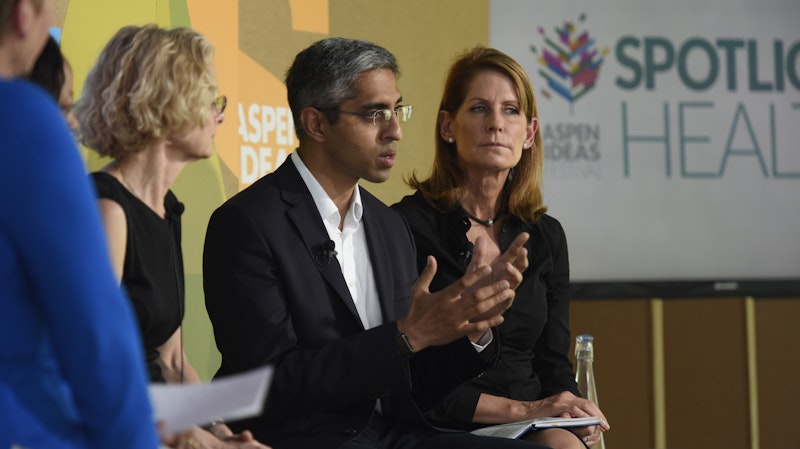
Deep Dive: The Opioid Tsunami
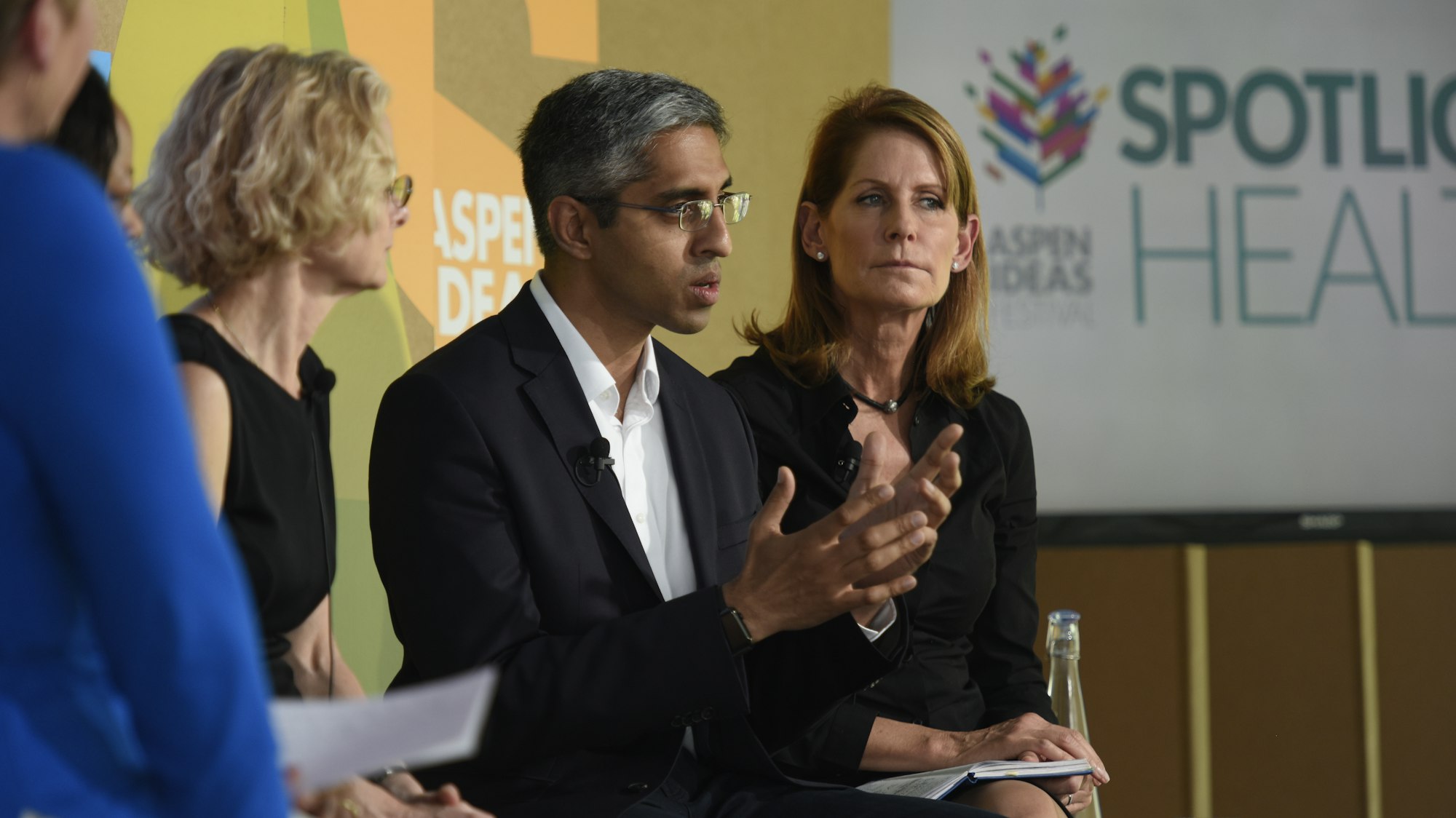
The opioid epidemic, and addiction more broadly, have become the defining public health crisis of our generation.
Full Session

Setup
Opioids are responsible for the worst drug epidemic ever to hit the United States. Shockingly, it is also the first one to have been “generated in the health care system,” says Nora Volkow. As physicians struggled to help patients suffering chronic pain, the pharmaceutical industry heavily promoted opioids and downplayed their abuse potential. Overdose deaths have risen steadily, quadrupling in the U.S. since 1999 as prescriptions soared.
The bright spot here is that addiction is increasingly recognized as a medical, not a criminal problem — a disease of the brain, not a disease of choice — and there are treatments that work.
Speakers
-
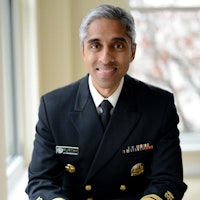 Vivek MurthyU.S. Surgeon General at the U.S. Department of Health and Human Servic...
Vivek MurthyU.S. Surgeon General at the U.S. Department of Health and Human Servic... -
 Nora VolkowDirector, National Institute on Drug Abuse, National Institutes of Hea...
Nora VolkowDirector, National Institute on Drug Abuse, National Institutes of Hea... -
 Perri PeltzDocumentary Filmmaker
Perri PeltzDocumentary Filmmaker -
 Jackie JuddCommunications Consultant
Jackie JuddCommunications Consultant -
 Yasmin HurdWard-Coleman Chair in Translational Research and Director, Addictive I...
Yasmin HurdWard-Coleman Chair in Translational Research and Director, Addictive I...
- 2017 Health
Understanding opioids and the scope of the epidemic
Opioids include both prescription drugs, such as percocet and oxycontin, and illicit substances like heroin and fentanyl, which act on receptors in the brain to diminish pain and promote euphoria.
By the numbers
Why are opioids so addictive?
Yasmin Hurd explains the neurobiology of addiction. Addiction can result from the ability of opioids to pass the blood-brain barrier, bind rapidly to receptors in the brain, and trigger a signaling cascade in the cells.
Who knew?
Preventing addiction requires treating both emotional and physical pain
In a journey across the U.S., Murthy realized that an epidemic of chronic stress is causing deep emotional pain. Yet doctors who fail to find a physical cause for someone’s health complaint too often dismiss the symptoms as “just in your head.”
Murthy says that misses a central truth. “You can experience emotional pain as physical pain. What is in your head is very real and it can influence your perception of pain.”
We know how to treat opioid addiction— but we’re not doing enough of it
Nora Volkow describes three classes of drugs that provide effective treatment for opioid addiction. “When you treat opioid use disorder with any one of these medications you not only decrease the consumption of heroin or the opioid, you actually prevent overdoses, you prevent criminal behavior, you prevent them from recycling back into the prison system, and you improve the outcomes on your neonatal abstinence syndrome.”
Yet these treatments are underused, says Volkow. One reason is the stigma associated with their use, with some people arguing they just substitute one medication for another.
Another is the lack of infrastructure — there simply aren’t enough treatment programs to care for all of those who are addicted to opioids. Insurance gaps are also an obstacle.
Big IdeaThe health care system has always lagged behind in not considering addiction part of their responsibility, of not seeing it as a disease that they should be treating and screening.Nora Volkow
Can marijuana help treat opioid addiction?
Leading in to a discussion about the promise of marijuana to combat opioid use, Hurd reminds us that “an epidemic calls for a different way of thinking.” Pilot studies suggest that the cannabinoids in the plant appear to decrease heroin-seeking behavior and possibly alcohol abuse. Unlike the THC in marijuana, cannabinoids do not have a rewarding effect.
Murthy underscores the importance of science to drive decision making about the use of marijuana, but observes that the federal government still restricts research.
Regulating marijuana to treat opioid addiction
Learn More
Additional Information
Resources
Warning: The Drug May Kill You
Confronting Our Nation’s Opioid Crisis, A Report of the Aspen Health Strategy Group
Explore More
USA

Global conflicts and health crises have put into stark relief deeply-ingrained gender roles in society. Yet the past years have also seen record-high numbers of women running...


Creativity is as intrinsic to our species as any of our basic instincts, says Debbie Millman, designer and curator. But for millions of people in the United States, the abilit...

Of course, Black history shouldn’t just be a month-long nod on our yearly calendar — it is inextricable from American history and fundamental to the very soul of our nation an...


Many more Americans are struggling to survive and make ends meet than is typically portrayed in the media and public policy debates. And when poverty is depicted, harmful and...


America’s “second founding” came on the heels of the Civil War, when the architects of the 13th, 14th and 15th amendments thought long and hard about how to enshrine civil rig...


It’s been decades since the United States has updated its immigration policies in any sort of comprehensive way, and the problems and suffering at the southern border have per...


Whether they publicly tout it or not, U.S. technology companies play a powerful role in politics, cultural issues and the way we live. Founder and investor Peter Thiel is one...

The 2024 presidential election is only months away, and the past few weeks alone have brought shocking headlines that change the political ground we stand on — an attempted a...


Sizable electorates around the world are flocking to populist candidates who promise power, domination and a return to better times. The global experiment in liberalism seems...


The federal right to abortions in the United States has been overturned, access to contraception and IVF services are threatened in many states, and the gender wage gap persis...

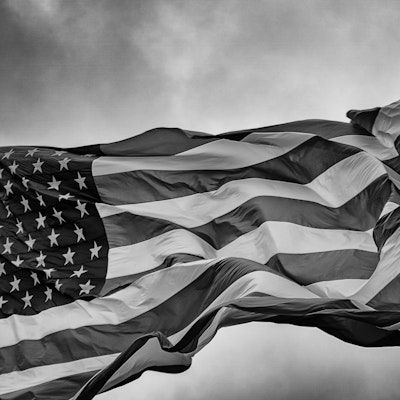
The Supreme Court has issued another series of controversial and consequential decisions this term, fueling discussion on the current state of the judicial branch. Recent poll...

The rollback of reproductive rights, the push to end no-fault divorce, and gun laws that allow domestic abusers to own a firearm are turning the clock back on women’s rights....
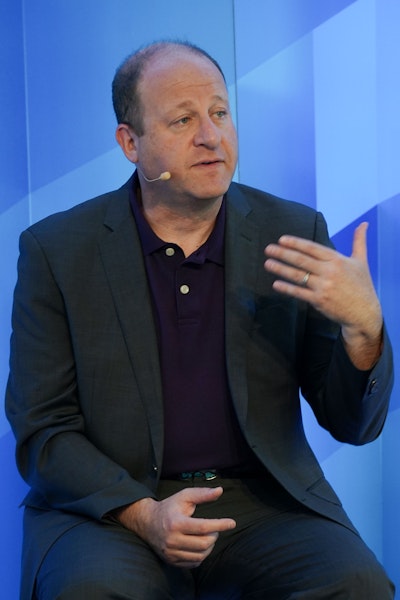
Americans feel more polarized than ever, but two governors from opposite sides of the aisle have made it their mission to show otherwise.

Former Senators Bill Nelson and Kay Bailey Hutchison discuss the bipartisan work that defined their careers, suggest ways for today’s elected officials to find common ground,...
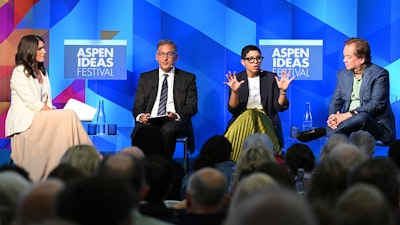
As the Supreme Court concludes another contentious term, it is once again reshaping the legal landscape. With cases on abortion, gun rights and social media — and potentially...

Two billion people worldwide are set to vote in elections this year, amid global conflict, societal mistrust, broken information ecosystems — and the truth-destroying disrupti...
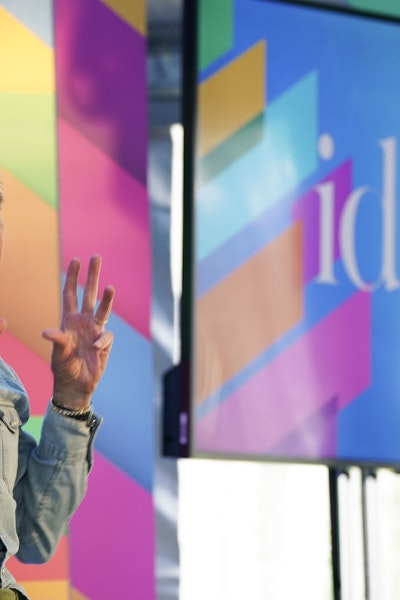
Amid seismic shifts in the entertainment world, Oscar-, Golden Globe- and Emmy-winning Brian Grazer has managed to keep pivoting to new ways to tell stories in movies, TV and...

Hurray for the Riff Raff is more than Alynda Segarra’s musical moniker; they spent their youth hopping trains across America, capturing that life in youthful poetry then and a...

Firearms are one of the leading causes of death among children in the U.S., a country where there have been more than 150 mass shootings in the first five months of 2024. Sit...

Images communicate truths, and also lies. Learning to pay attention to photographs can help us discern. An art and cultural historian and a visual artist host a master class o...









